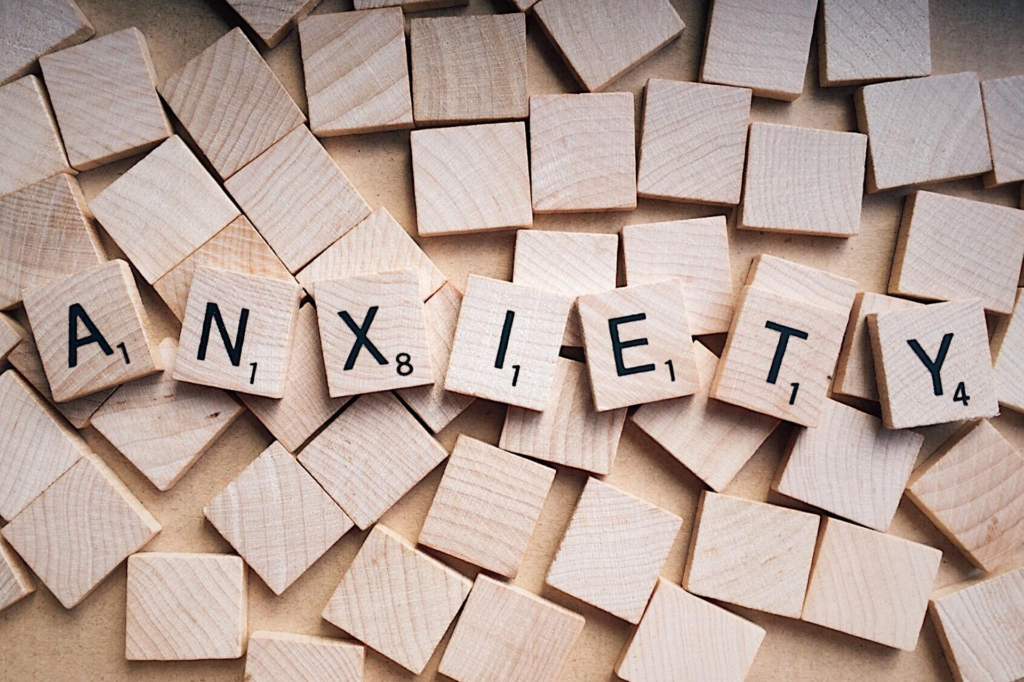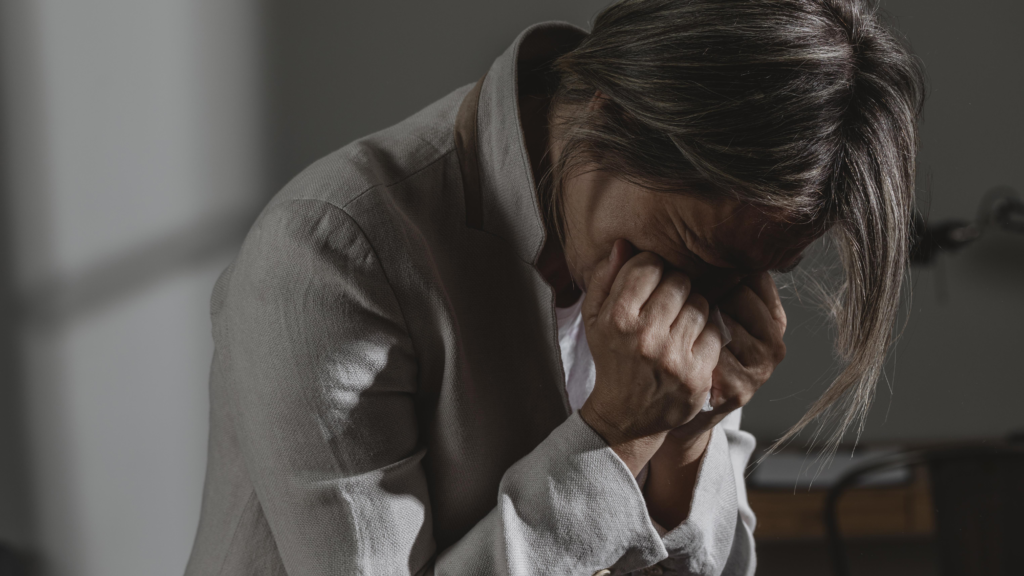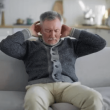This article is for informational purposes only and is not meant to offer medical advice.
When anxiety hits, stress is the natural response. You will feel fear, uneasiness, and nervousness about what’s going to happen. One of the most prominent situations that tend to cause anxiety are Job interviews, the first of school, and public speech. It is natural to become fearful or concerned but it is abnormal to feel intensely for a prolonged period of time. Therefore, if you’re anxious all the time or on an extreme level where you lose touch with reality, you may have anxiety disorder.
What Is Anxiety?
It is perfectly human to feel anxious about your first date, first career opportunity or doctor’s visit. Although this type of anxiety is irksome, it encourages you to step out of your comfort zone and get a clearer perspective about life’s challenges. It comes and passes and doesn’t ring any concern if it does not interfere with your daily life.
If you suffer from anxiety disorder nevertheless, the constant feeling of panic and agitation is unshakable. Crippling anxiety is not just pressors and stressors you might encounter. As the name suggests it cripples your quality of life and drains your entire being.
It may cause you to stop doing the things you used to love. A simple task like crossing the streets can become a nightmare in extreme cases of anxiety. Anxiety disorder is considered as an emotional disorder that can affect both men and women. However, according to the American Psychiatric Association, women are more prone to anxiety than men.

What Causes Anxiety ?
Despite our modern scientific advancement and research, scholars have not quite found a specific cause of anxiety. All things considered; it is an amalgamation of different factors at hand. These factors cover genetic, environmental, and chemical influences.
Researchers presume that the Amygdala (the region which controls fear) may be affected. There is some deeper investigation being done on this topic. Anxiety could be linked to certain medical issues. A person may experience some anxiety signs and symptoms which could be related to another medical issue. Examples of such culprits include Heart disease, Diabetes Thyroid problems, such as hyperthyroidism
Respiratory disorders, such as chronic obstructive pulmonary disease (COPD) and asthma, Drug misuse or withdrawal etc.
What are Risk Factors of Anxiety?
The main Risk Factors of Anxiety are the following:
-
Genetics :
One of the major risk factors of anxietyAlthough the actual causes aren’t well understood or discovered, a high-risk factor is your family blood. Yes, your genes may be the culprit for your anxiety disorder. If you have a family history of suffering from anxiety, you are more likely to have it too. this may or may not be factual as there is no anxiety gene. But keep it in consideration.
-
Trauma:
Life is full of ups and downs, and people’s reactions to it differ. If you’ve been subject to sexual harassment or violence at an early age, anxiety is inevitable. It could be shaped as PTSD (Post-traumatic stress disorder). As the name suggests, you start to relive a particular stressful event or a bad memory over and over again. A flashback may become a whirlwind of inescapable emotions you cannot let go of.
-
Loneliness:
Taking some time for yourself is never a bad idea. However, if you become so disconnected from the world where basic interactions feel like torture, it is a concern. This could lead to anxiety and depression which will make it far more distressing. Loneliness will disconnect you from your social circles where you can no longer bond with people. The day you do, feelings of discomfort and fear of judgment will prevent you from making any connections. Hence, you’ll feel anxious outside your private bubble.
What Are the Types of Anxiety ?

The major types of anxiety disorder are the following:
-
Generalized Anxiety Disorder:
GAD is a type of anxiety marked by long-lasting anxiety, chronic overthinking and tension despite no probable cause.
-
Obsessive Compulsive disorder:
OCD is the recurrence of unwanted thoughts (obsessions) and repetitive behavior (compulsive). The repetition of certain actions like cleaning, door checking, and counting may temporarily help in fighting these obsessions or making them go away.
-
Panic Disorder:
This type of anxiety disorder is characterized by unforeseen and frequent episodes of acute fear along with physical symptoms like chest pain, heart throbbing, shortness of breath and dizziness.
-
Social Anxiety:
Referred to as social phobia and is characterized by immense apprehension and excessive self-consciousness in daily social situations. It is limited to only 1 social situation : fear of public speaking, or public eating and drinking.
Anxiety symptoms:
Each person is different, and their body will react accordingly. An anxious person may experience feelings from butterflies in the stomach while seeing his first date to a racing heart. At this stage, you will feel out of touch with your mind and lose control over your body. Other people may experience anxiety through nightmares; waking up drenched in sweat, panic attacks, and painful memories. You may have a general feeling of worry, nervousness and most importantly, fear.
Symptoms may vary but not limited to :
- Increased heart palpitationsrapid breathing
- restlessness
- trouble concentrating
- insomnia
Like aforementioned, anxiety presents itself differently. That’s why you need to pay attention to your body and your thoughts. connect with your soul and mind and if necessary, consult your medical professional.
What Does Anxiety Feel Like?
Anxiety is experienced differently, and people do not have the same definitions. Some say it is hard to describe it or tie it down. Others portray it as a constant and overpowering feeling of horror and dread about the unknown. It is a debilitating emotion-sucking vampire. But can we give a specific illustration of this feeling ?
Anxiety feels like a sword piercing your chest with every breath you take. This is no exaggeration, but it is reported that anxiety has one of the most intense chest pain ever. It may last 1 minutes or lasts hours or even days.
Anxiety feels like a dark cloud hovering over your head with negative speech. Another defining characteristic of anxiety is the constant negative talk you keep telling yourself. It is the harsh judgment of yourself with negative self-talk. It is that voice in your head spewing endless streams of negativity. A loop that is hard to break.
Moreover, anxiety feels like an imposter who hijacked your normal self. Some people experience this feeling of being replaced by a mischievous imposter. A person who looks like you but acts completely different. It feels like an out-of-body experience, where you look at yourself from the outside unable to control the person inside. Feelings of powerlessness, defeat, and frustration are dominating your mind. eventually the imposter will be gone, and you’ll return to yourself, for a while.
Anxiety Outlook
Unfortunately, anxiety is incurable as it is chronic and takes many forms. the outlook is determined by the extremity of the condition. For instance, people who suffer from OCD, phobias, and panic disorders improve considerably within a period from a week to a month if proper treatment has been done. Same perspective goes for people who are diagnosed with PTSD and GAD. They can substantially improve with therapy. Additionally, certain symptoms will decrease as people age.
On the other spectrum, stress management is a perpetual concern. The symptoms might worsen especially in periods of chronic stress. Nevertheless, with medication as well as psychotherapy most people suffering from anxiety disorder can control the severity of their symptoms.

Anxiety Disorder Diagnosis: How to know if you have Anxiety?
First and foremost, you have to pay attention to your symptoms and how your body reacts during stressful situations. If you experience several symptoms as mentioned above, consult with your doctor. You can either visit a medical specialist, psychiatrist, psychologist, or a licensed clinical social worker.
Anxiety disorder diagnosis is undertaken as follows: the medical professional operates a physical exam, asks you about prevalent symptoms and recommends a blood test. This way, the doctor can identify if there’s another condition that may be causing the symptoms like hypothyroidism.
A doctor may also ask you if you are taking certain medications, which may be the culprit of these symptoms. These medications include levodopa and cyclosporine.
If the physical exam fails to detect any underlying causes for the symptoms, he will do a psychological evaluation.
How To Treat anxiety?
There are two types of anxie ty treatment: psychotherapy and medications. If you choose both, you will harness better effects. So here is how to treat anxiety :
-
Psychotherapy:
Also known as psychological counselling and this method involves speaking with a therapist to diminish your symptoms. One of the most effective forms of psychotherapy is CBT. Cognitive behavioural Therapy is based on teaching the patient specific skills to enhance their symptoms. It is intended to lessen the stress level when engaging with activities that used to cause you anxiety. CBT focuses on exposure therapy – you are put with the object/situation that triggers your anxiety – and teaches you how to manage it.
-
Medication:
Depending on the type of anxiety disorder, some medications can provide relief : antidepressants, buspirone (anti-anxiety), benzodiazepines. These however have a short-term effect, and the relief may not last long. So talk with your doctors about the benefits, risks, and possible complications.
How to deal with Anxiety? How to calm anxiety ?
Other than medical treatment, there are few steps you can do yourself to deal with your anxiety and calm the storm inside. Here are a few tips to follow :
-
Keep yourself physically active
Daily routine that involves being physically active is one of the best starters. Exercise is a powerful tool to evacuate the stress that’s been burdening your mind and your body. It is a great mood enhancer and helps keep you healthy and fit.
-
Choose what you eat wisely:
If your diet is anything but green, so does your body and mind. Fresh vegetables, fruits, whole grains and fish are necessary to lead a stress-free life.
-
Journaling:
This technique is used by emperors, politicians, and even doctors. Everyone uses it because it is a free treasure. If you feel intense emotions and your anxiety begins to play dirty on you, then it is time to journal your thoughts. Write down what you are feeling at this moment, why you are feeling this way, and how you can get over it. Talk to your subconscious self and be honest with your pen. It is a great strategy to alleviate stress levels.
This Interesting video may help you also:
How to prevent anxiety??
Although anxiety prevention is not a 100% guarantee if you are self-diagnosed. However, reducing the symptoms is a good step. If you are not diagnosed with anxiety, you may even benefit more from these simple pieces of advice.
-
Accept it:
As simple as that. It is okay to feel a little overwhelmed from time to time. It is completely normal to behave like an entirely different person. Occasional anxiety isn’t escapable, and it is healthy to feel it.
-
Do not criticize yourself for it:
The last thing you should do is beat yourself about feeling anxious. It just adds another unwanted burden which you don’t need. Instead, reinforce positive self-talk and be open to other perspectives around your emotions.
-
Do a Reality check:
Ask yourself the following questions :
- On a scale from 1 to 10, how likely is the thought/situation I am worried about will happen ?
- Do I have a logical reason to think this way ?
- Am I overthinking about it .
The bottom line is instead of trying to prevent anxiety, accept it, don’t criticize yourself and do a reality check.
How To Help Someone With Anxiety?
A person diagnosed with anxiety can be a little difficult to deal with if you don’t know the ways. If you don’t know anything about this disorder or think it is fake, then here’s what to do at first:
-
Get an understanding of the symptoms and educate yourself on this topic:
Since symptoms vary from person to person, it is necessary to know how the person you’re dealing with behaves. On that note, once you identify the symptoms it will be easier to know what to do.
-
Let them know you are here:
Empathy is an essential tool to let the other person feel valued and understood. By being emotionally open to your person, you give them the opportunity to trust you and be comfortable with the way they are. It is a great relief for them to know that there is someone who’s always there and supporting them. It is part of the treatment after all.
-
Actively listen to how they want to be supported:
Ask the person how they want to be treated, what are the things that trigger their anxiety, and the activities/situations they don’t feel comfortable doing. Listening to their needs and responding accordingly is the best way you can support them.
We leave you watching this useful video down below:
Conclusion :
Anxiety is a chronic mental disorder that can interfere with the quality of your life. If you or a loved one think you might have anxiety, please consider consulting a medical professional to do the necessary diagnosis. Effective treatment and prevention methods are available and varied. You can opt for the method you feel more comfortable with or help your friend/lover/partner in exploring the options. Part of the treatment is how to cope with anxiety. So even if it takes blood, sweat, and tears, never give up easily and extend your support by attending your doctor’s appointments. Keep in mind that you are not alone and there are millions of people who are fighting in the same battle.
Share your thoughs in comments and see our other opinion articles
This article is for informational purposes only and is not meant to offer medical advice.

A Content Writer & Freelance Translator. He enjoys writing about mental health, fun for seniors, educational apps, and entertainment for all. In his spare time, he enjoys watching football, playing video Games, and good laugh with his friends.









